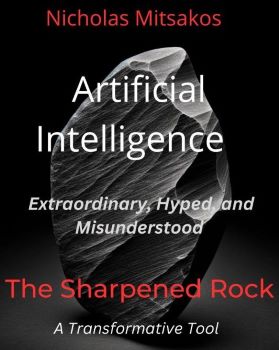The first and most crucial principle in understanding AI is recognizing its inherent nature as a tool, a creation of human ingenuity designed to augment, rather than replace, human intelligence. AI systems, at their core, are complex algorithms capable of processing and learning from data at a scale and speed unattainable by human cognition.
However, it is an unprecedented, powerful tool that can permeate every aspect of society, industry, and human ingenuity globally. Its impact can be equivalent to Prometheus giving humans the gift of fire.
Artificial intelligence is permeating our lives, and much like electricity at the turn of the last century, its dramatic and long-term impacts are only beginning to be understood, and applications using this ubiquitous technology are filled with promise, hyperbole, hope, and optimism – sometimes misplaced and sometimes understated.
AI is expansive and exhilarating, potentially leading to more autonomous AI systems and an impactful integration into everyday life. As this book’s title indicates, this tool’s power is equivalent to humankind’s development of the sharpened rock. A transformative and effective tool that enables more efficient applications, creativity, more manageable workloads, and potential risks. After all, a sharpened rock is also a weapon.
Artificial general intelligence is not a surrogate for human intelligence and is overstated and misleading. Artificial General Intelligence is excellent at pattern recognition and intense statistical analysis; however, intelligence is not merely about pattern recognition or generating responses based on probabilities.
True intelligence involves creative conjectures, critical thinking, and moral reasoning, areas where AI, including advanced large language models, still falls short.
Artificial intelligence faces many challenges, including extracting value from data deluge and AI systems’ probabilistic nature. While indisputably a powerful tool, much like sharpened rock, it is a transformative tool for humankind. It comes with great potential and unpredictable benefits and risks.
AI systems lack the capacity for top-down reasoning, making them fundamentally brittle and prone to breakdowns at the edges of their operational parameters. While useful within their comfort zones, these systems struggle with unusual circumstances and edge cases not common in their data sets and training data.
This book aims to present a comprehensive and balanced perspective on AI, acknowledging its transformative power while highlighting the need for a cautious and informed approach to its development and integration. A nuanced understanding is essential, recognizing AI’s potential as a tool for advancement while being mindful of its limitations, ethical implications, and the importance of human oversight in its deployment.

